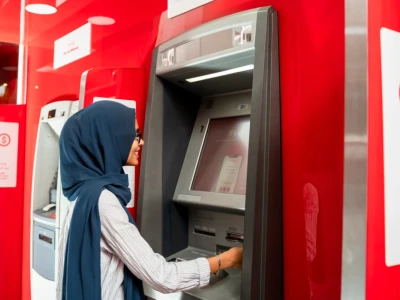
Solih urges govt to rethink tourism foreign exchange rules
Solih cautioned against measures that could harm its sustainability.
Former President Ibrahim Mohamed Solih on Sunday urged the government to reconsider recently introduced foreign exchange rules that require tourism businesses to deposit and exchange a significant portion of their foreign earnings at local banks.
Speaking on Raajje TV’s programme, Solih described the tourism industry as the "golden egg-laying hen of the economy" and cautioned against measures that could harm its sustainability.
The Maldives Monetary Authority (MMA) has mandated tourism businesses, including resorts, to exchange $500 per tourist through local banks. However, this rule has faced widespread opposition, with over 50 resorts submitting letters to the MMA expressing concerns. Resort owners argue that it is impractical to exchange $500 per tourist, citing the operational challenges such a rule imposes.
Solih highlighted the need for stakeholder consultations before implementing such measures. He outlined his perspective on the issue:
-
Decisions affecting the tourism industry should be made collaboratively with all stakeholders.
-
Policies should be based on thorough analysis of the industry’s income, expenses, and loan burdens.
-
Tourism businesses would not oppose reasonable measures grounded in mutual agreement.
Solih emphasised that cutting government expenditure should be prioritised before placing additional financial burdens on businesses.
“The government already spends MVR 1 billion on salaries per month,” he said, adding that the current tax burden on businesses stands at 30% of their income.
The former president underscored the importance of sustaining the tourism sector, likening it to a "golden egg-laying chicken."
“It shouldn't be killed. It should be kept in good health so that it can lay eggs,” he said.
Drawing on his administration’s experience, Solih explained that his government had held discussions with tourism stakeholders on similar issues. Two proposals were considered during those discussions:
-
Allocating a fixed percentage of tourism revenue to local banks, which was agreed upon at 10%.
-
Depositing a percentage of tourism revenue in local banks for a limited time, with the funds to be returned to businesses after three months.
These proposals were debated, but the government changed hands before a final decision was reached. Solih also pointed to the establishment of a minimum wage under his administration as an example of policies developed through extensive consultation with stakeholders.
In response to the current rule, several businesses have formally expressed their inability to comply. Champa Mohamed Moosa, a prominent figure in the tourism industry, and his three companies have written to the MMA stating that the rule is unfeasible. Moosa has called on the government to halt the implementation and adopt measures that address foreign exchange challenges in the long term.




